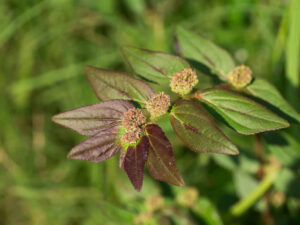What Is Apple Cider Vinegar?
 Apple cider vinegar (ACV) is a type of vinegar made with crushed fermented apples, yeast, and sugar. It’s used as an ingredient in foods such as salad dressings, pickles, and marinades.
Apple cider vinegar (ACV) is a type of vinegar made with crushed fermented apples, yeast, and sugar. It’s used as an ingredient in foods such as salad dressings, pickles, and marinades.
For many years, people have also used it as a home remedy for everything from fighting germs to preventing heartburn. More recently, research has shown that it might have some real health benefits, such as helping reduce blood sugar levels and aiding weight loss.
While there’s not a lot of evidence of these benefits, ACV is generally harmless – as long as you use it correctly. And it contains some of the same nutrients as apple juice, including B vitamins as well as antioxidants called polyphenols.
Types of Apple Cider Vinegar
Apple cider vinegar is made through a process called fermentation. The process has two steps. First, the apples are crushed and yeast is added to speed up the fermentation process, so the sugar converts into alcohol after a few weeks. Then, natural bacteria break the alcohol down into acetic acid, which gives vinegar its tangy taste and odor.
Most ACV you find in the grocery store is the clear, pasteurized, and filtered type. But you can also buy raw, unfiltered ACV that contains a cloudy sediment. Called “the mother,” this substance is made up of settled bacteria and yeast.
Some people give the mother credit for ACV’s health benefits. And it’s thought to contain small amounts of probiotics (healthy bacteria) that are good for gut health. But research hasn’t shown that the mother offers any particular health benefit.
The acetic acid in ACV is thought to be at least partly responsible for any health benefits it has. But other types of vinegar contain acetic acid as well.
Apple cider vinegar supplements
You can also buy ACV pills, powders, or gummies. But there’s been little research into whether these supplements have any effect. Because the FDA doesn’t regulate dietary supplements, you can’t be sure exactly what’s in them.
Is Vinegar Good for You?
Vinegar is an excellent source of:
- Potassium
- Magnesium
- Calcium
- Phosphorus
Some types of vinegar can also be a good source of antioxidants. The darker the vinegar, the more antioxidants remain in the liquid. Darker vinegars are generally less refined than lighter vinegars, with healthy compounds in the liquid affecting taste and color.
Apple Cider Vinegar Benefits
Most studies that support ACV for health effects have been small, and the results haven’t been decisive. We need more and bigger investigations of its benefits. So far, here’s what research has found:
It may help with weight loss. One study showed that taking 1-2 tablespoons of ACV a day helped people following a reduced-calorie diet lose a few extra pounds. But the study was small and short-term, following 39 people for 12 weeks. It didn’t record what the study subjects ate on their diets or how much they exercised. Further, it wasn’t blinded, which means people in the group who got ACV knew they were getting it.
It may lower blood sugar. Several smaller studies have reported that taking a tablespoon or two could lower your blood sugar after meals. The effect was moderate, and we need more research to know exactly how it works. Keep in mind that vinegar can’t replace diabetes medications and a healthy lifestyle, but it should be safe to add to your treatment plan.
The 39 people in the weight loss study also decreased their visceral adiposity index, an estimate of how much deep-belly fat the body contains. This visceral fat, which surrounds the organs in your belly area, is thought to be especially risky for health. But the study’s small size and other flaws mean that it doesn’t prove that ACV is effective in fighting belly fat.
What Are Other Uses for Apple Cider Vinegar?
People also use apple cider vinegar for purposes that haven’t been researched much or haven’t been shown to be effective. Some of these uses include:
Lower blood pressure. One study in rats suggests that ACV could help with high blood pressure, but no studies involving humans back this up. High blood pressure can be a serious condition, so medical treatment and a healthy lifestyle are essential.
Ease acid reflux. Many people swear by ACV as a remedy for heartburn and acid reflux. But there’s no research to prove it works for those conditions. Ask your doctor if you could try it to ease your discomfort. Start with small amounts, diluted in water.
Kill germs. There’s some evidence that ACV (along with lemon juice) can keep bacteria like salmonella from growing on salad greens. But it doesn’t protect wounds against infection.
Improve hair health. Some people use it as a hair rinse to ease dandruff or remove product buildup. There’s no proof it works for these things. But it does contain things that fight bacteria and fungi, which could promote hair health.
What are the benefits of honey and apple cider vinegar?
One review of 20 studies concluded that oxymel might help manage asthma, obesity, and type 2 diabetes. But most of these studies were small, and some were done in animals, so we need further research. Another study found that honey-vinegar syrup increased blood sugar and reduced “good” HDL cholesterol levels in healthy people. Neither study specifically included apple cider vinegar.
If you find the taste of ACV too bitter, mixing it with honey can make it easier to take. But honey is high in sugar, so be cautious if you’re watching your blood sugar levels.
How to Use Apple Cider Vinegar
It’s safe and tasty to use ACV to add some excitement to your meals. Use it to liven up sauces and stews, as well as traditional salad dressings and marinades.
If you take an ACV pill, tablet, powder, or gummy, start by asking your doctor how much you should take. Follow the package instructions, as dosages may vary by brand. Your safest bet is to look for brands with a stamp from the Banned Substances Control Group, Informed Choice, ConsumerLab, United States Pharmacopeia, NSF Certified for Sport, or NSF International.
If your doctor gives you the OK to try ACV for eczema, do a patch test first. Apply the vinegar to a small area of skin, then wait a few days to see if any irritation happens. You could then try it in:
- A bath. Add 2 cups of apple cider vinegar to a tubful of lukewarm water. Soak for 15-20 minutes. Rinse your body well with cool water and moisturize with a scent-free lotion.
- A wet wrap. Make a solution with 1 cup of warm water and 1 tablespoon of ACV. Soak gauze or pieces of clean cotton fabric in the solution. Put the wet cloths on your skin, then cover them with clean, dry cotton fabric. Leave them on for 3 hours or overnight.


